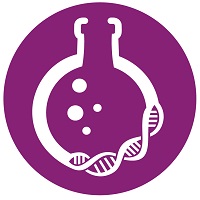Bioanalytics
AI/ML for Personalized Medicine
Monday, October 21, 2024
10:30 AM - 11:00 AM MT
Location: 150 DEFG

Corinne Ramos, PhD (she/her/hers)
R&D Director
Aliri Bioanalysis
LOOS, Nord-Pas-de-Calais, France
Speaker(s)
The integration of Artificial Intelligence (AI) and multi-omics data marks a pivotal advancement in drug development, propelling us toward more precise efficacy predictions for immunotherapies. Our study harnesses the power of AI in conjunction with genomic, proteomic, and metabolomic analyses to conduct an in-depth, data-driven evaluation of complex biological datasets. This approach enhances our ability to predict the effectiveness of immunotherapies at an early stage in the drug development process, well before traditional methods would allow.
By pinpointing responsive patient subgroups with promising molecular targets at the outset, our objective is to refine therapeutic strategies and accelerate the development pipeline. Initial findings from our AI-driven predictions demonstrate a high probability of success for a checkpoint inhibitor, particularly within patients identified by distinct proteomic and genomic markers. Our predictive models estimate a high number of positive responses in these targeted groups, substantially higher than in broader population trials.
AI models identify critical molecular targets and illuminate pathways that could lead to adverse effects, thus boosting the safety and effectiveness of potential treatments. By embracing these cutting-edge technologies, we can expedite the realization of personalized medicine, providing targeted, efficient, and safer treatment options to patients more quickly.
By pinpointing responsive patient subgroups with promising molecular targets at the outset, our objective is to refine therapeutic strategies and accelerate the development pipeline. Initial findings from our AI-driven predictions demonstrate a high probability of success for a checkpoint inhibitor, particularly within patients identified by distinct proteomic and genomic markers. Our predictive models estimate a high number of positive responses in these targeted groups, substantially higher than in broader population trials.
AI models identify critical molecular targets and illuminate pathways that could lead to adverse effects, thus boosting the safety and effectiveness of potential treatments. By embracing these cutting-edge technologies, we can expedite the realization of personalized medicine, providing targeted, efficient, and safer treatment options to patients more quickly.
Learning Objectives:
- Upon completion, participants will be able to analyze how the integration of Artificial Intelligence (AI) and multi-omics data enhances early prediction and development of effective and safe immunotherapies.
- Upon completion, participants will be able to evaluate the effectiveness of AI-driven models in identifying patient subgroups and molecular targets in the context of drug development.
- Upon completion, participants will be able to describe the role of genomic, proteomic, and metabolomic analyses in conjunction with AI in predicting immunotherapy outcomes.

